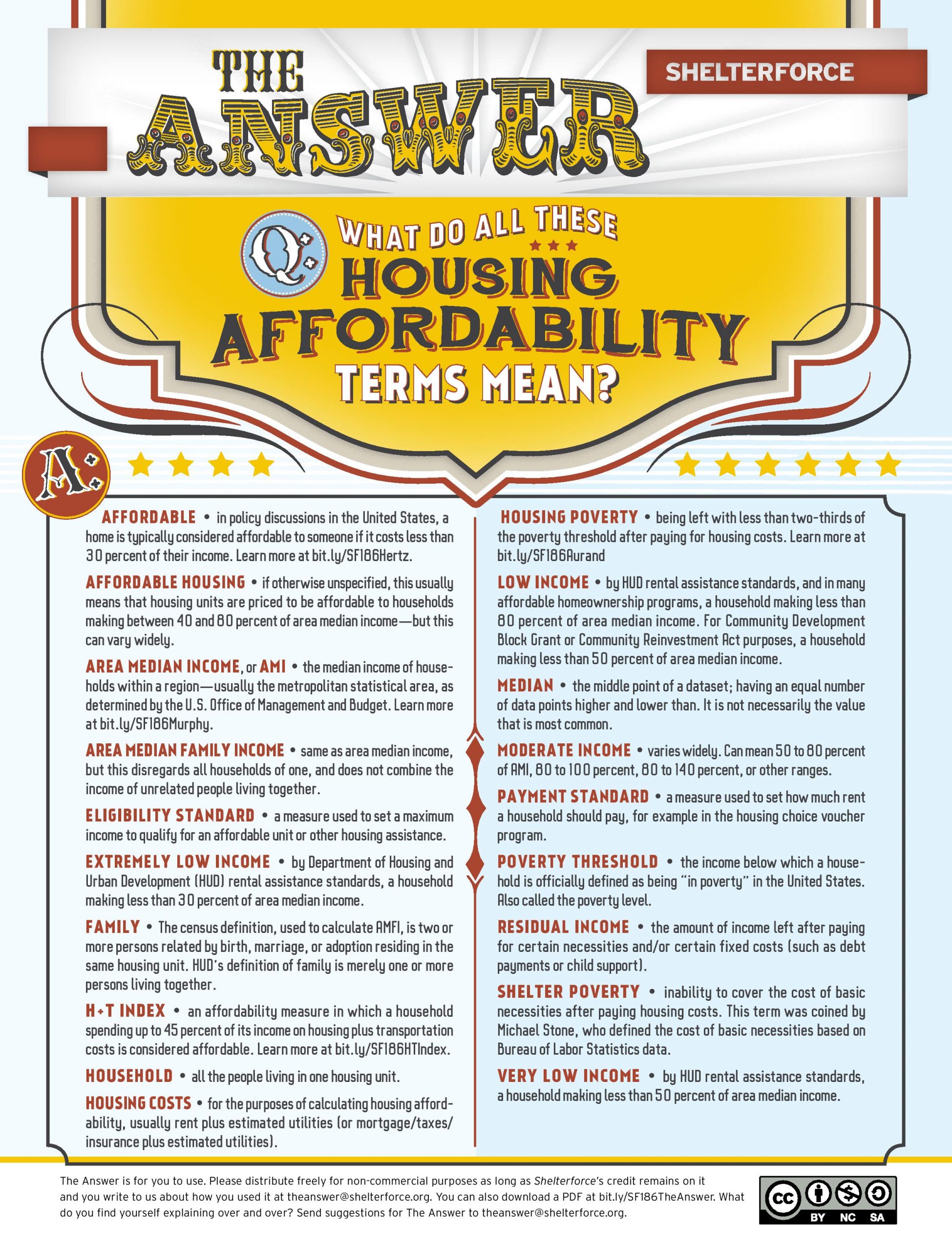
The Answer is a one-page response to questions many of our readers find themselves answering over and over, whether to colleagues, potential partners, funders, policymakers, or the public. We release a new one with each print issue and make it available online as a PDF.
Do you have a question you are asked over and over? Let us know at [email protected].




My name is Angela Williams. I am the VISTA Organizer for Metropolitan Tenants Organization. I am having a meeting next Thursday, July 13, 2017. Can you send me about 100 copies of the Housing terms? You can email me a copy and I can print it out.
Thank you,
Angela Williams
Angela, You should be able to download the pdf from this page to print it out–if you click on the image you’ll get a printable pdf. Please let us know if that doesn’t work, however, and we’ll see what we can do! I’m glad you find it useful.
Isn’t HUD’s definition of a family one (not two) or more individuals in a household? (Looking at Definition of Family in HUD’s Housing Choice Voucher Program Guidebook.)
Sarah,
We were giving the Census definition of family, since that’s what’s used to determine Area Family Median Income. https://cber.cba.ua.edu/asdc/households_families.html.
But I wouldn’t be surprised if HUD’s is different, and I should have caught that. Can you point us to the chapter/page in the guidebook with the definition?
Thanks!
Chapter 5, section 2 (Eligibility Requirements), under Definition of Family
Thanks. We’re going to work on issuing a corrected version.
Corrected version uploaded, FYI.
For the H*T Index, is the opportunity cost of commuting time included in the Transportation costs? (for example, if it takes you 2 hours to commute per day — that is time you could be getting paid work, if you did not have the commute).
Good question, Ann. I don’t recall seeing that factored in. (I personally would kind of hope that one would use that time for something other than paying work, unless one is notably underemployed, since Americans are notoriously overworked. But the lost time is a cost nevertheless.)